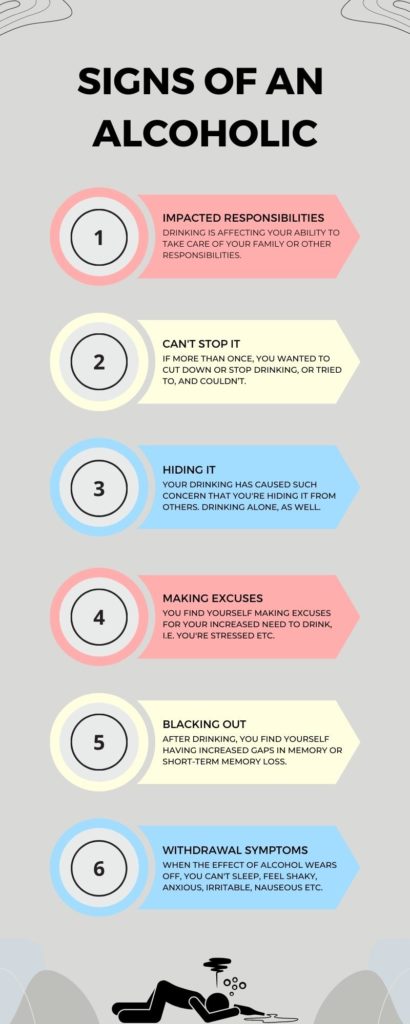Alcohol is a common substance found in America. Drinking it has become so routine that it is often difficult for an untrained person to recognize the signs of an alcoholic. Is someone drinking just because they are in college and it’s “what you do in college”? Are they acting funny, and you don’t know why? Do you think you smelled alcohol on someone’s breath at work, but you aren’t sure? Are you wondering if you yourself are an alcoholic?
First and foremost, note that it is up to the individual in question whether or not they identify as an alcoholic. Even Alcoholics Anonymous does not require its members to identify as an alcoholic. However, there are several methods of determining whether someone has an alcohol problem or alcohol use disorder.
DSM-V Criteria for an Alcohol Use Disorder
The most widely used clinical method of identifying an alcohol use disorder is via the criteria laid out in the Diagnostic and Statistical Manual of Mental Disorders, 5th Edition (DMS-V). The criteria ask if, in the past year, you have:
- Have times when you ended up drinking more or longer than you intended?
- More than once, wanted to cut down or stop drinking or tried to, but couldn’t?
- Spent a lot of time drinking? Or being sick or getting over the aftereffects?
- Experienced craving — a vital need, or urge, to drink?
- Found that drinking — or being sick from drinking — often interfered with taking care of your home or family? Or caused job troubles? Or school problems?
- Continued to drink even though it was causing trouble with your family or friends?
- Give up or cut back on activities that were important or interesting to you or gave you pleasure to drink.
- More than once gotten into situations while or after drinking that increased your chances of getting hurt (such as driving, swimming, using machinery, walking in a dangerous area, or having unsafe sex)?
- Continued to drink even though it was making you feel depressed or anxious or adding to another health problem? Or after having had a memory blackout?
- Had to drink much more than you once did to get the effect you want? Or found that your usual number of drinks had much less effect than before?
- When the effects of alcohol wore off, you had withdrawal symptoms, such as trouble sleeping, shakiness, irritability, anxiety, depression, restlessness, nausea, or sweating. Or sensed things that were not there?
Answering yes to 2-3 of these criteria is diagnosed as a mild AUD, 4-5 is a moderate AUD, and 6 or more is considered a severe AUD.
These criteria are questions that may not be observable or notable to an outsider and need to be answered by the individual in question. With that, the DSM-V criteria are suitable for diagnostic purposes but not for initially determining if pursuing an assessment is necessary.

CAGE Screening
Another way to identify alcoholism is via CAGE Screening. This is a short yes or no quiz where if individual answers “yes” to 2 or more questions, they are advised to seek professional treatment.
The four CAGE screening questions are:
- Have you ever felt you should cut down on your drinking?
- Have people annoyed you by criticizing your drinking?
- Have you ever felt bad or guilty about your drinking?
- Have you ever drunk first thing in the morning to steady your nerves or get over a hangover?
Symptoms of Alcoholism
To identify the signs of an alcoholic, whether it be yourself or someone else, here are common symptoms that you can look out for:
- Blacking out or short-term memory loss
- Severe mood swings and irritability
- Creating excuses for unusual drinking patterns, such as being stressed
- Avoiding responsibilities and obligations to drink
- Isolation from friends and family
- Hanging around new groups of people
- Hiding drinking or drinking alone
- Developing withdrawal symptoms when not drinking
Getting Help for an Alcoholic
If you observe signs that point to you or a loved one being an alcoholic, do not wait to take action. Aa meetings are being held every day in a community near you. Also, if withdrawal symptoms develop, this is a severe condition that requires medical attention. Contact an addiction treatment facility to get professional attention and get started today. For more resources, locate an alcoholics anonymous near you by clicking here.
Sources:
https://www.niaaa.nih.gov/alcohol-health/overview-alcohol-consumption/alcohol-use-disorders

